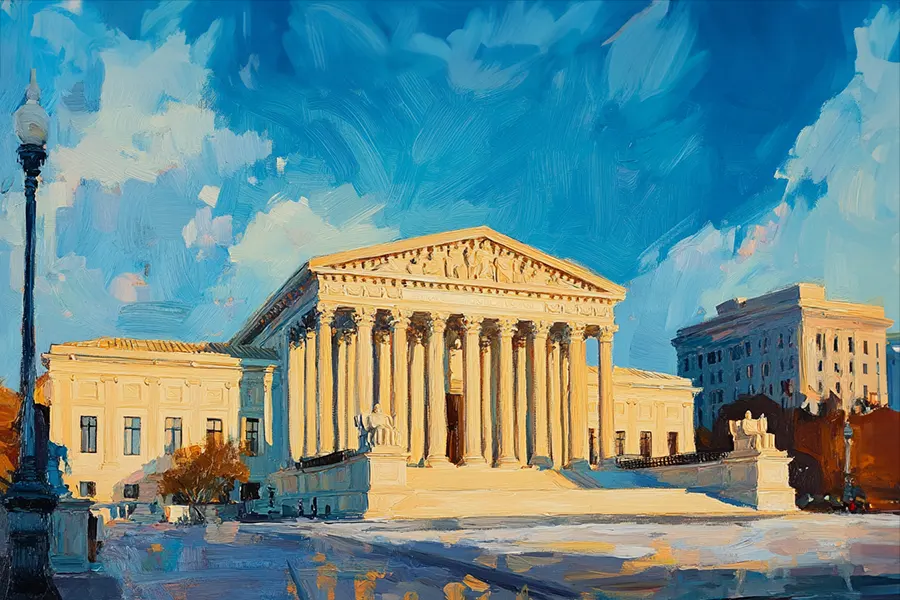In 2019, the U.S. Supreme Court issued a number of decisions that have direct implications for civil and criminal trial lawyers who practice in state and federal court. While the civil decisions are relatively issue-specific (such as when confidential business records are protected by the Freedom of Information Act), its criminal decisions often have a much broader applicability for criminal trial practitioners.
Below is a look back at some of the Supreme Court’s most noteworthy decisions for trial lawyers in 2019.
2019 U.S. Supreme Court Decisions Impacting Civil Trial Lawyers
Confidential Business Records are Protected Under the Freedom of Information Act: Food Marketing Institute v. Argus Leader Media
In Food Marketing Institute v. Argus Leader Media, the U.S. Supreme Court held that private businesses’ confidential information is protected by the Freedom of Information Act (FOIA) when the information, “is both customarily and actually treated as private by its owner and provided to the government under an assurance of privacy.” In doing so, it rejected an argument that information must be released unless its release would cause harm, stating that the 1974 appellate decision establishing this “harm” requirement was misguided. As long as the information satisfies the basic requirements set forth in the Court’s guideline above, it qualifies as “confidential” for purposes of FOIA’s Exemption 4 under 5 U.S.C. § 552(b)(4).
Disputes Regarding Ambiguous Employment Contracts Must Be Resolved Through Arbitration: Lamps Plus Inc. v. Varela
In Lamps Plus Inc. v. Varela, the Supreme Court held that employees could not bring a class action lawsuit against their employer where the employer’s standard employment agreement was ambiguous on whether class action litigation was permitted. The case arose out of a data breach that resulted in the disclosure of approximately 1,300 Lamps Plus employees’ personal tax information. When one of the affected employees filed a class action lawsuit, Lamps Plus argued that individual arbitration was required based on the employment agreement’s language. After the lower courts sided with the employee who initiated the class action, the Supreme Court reversed the decision. Chief Justice Roberts wrote, “[c]ourts may not infer from an ambiguous agreement that parties have consented to arbitrate on a classwide basis.”
Consumers Can Sue for Antitrust Violations: Apple Inc. v. Pepper
In Apple Inc. v. Pepper, the Supreme Court held that iPhone owners who purchased apps through the App Store had standing to sue Apple for antitrust violations. Specifically, the court held that the iPhone owners were “direct purchasers” under the standard adopted in Illinois Brick Co. v. Illinois and thus had them the right to sue for Apple’s alleged monopolization of the market for iPhone apps. Writing for the majority, Justice Kavanaugh stated that Supreme Court precedent has, “consistently stated that direct purchasers from alleged antitrust violators may maintain a suit against the antitrust violators.” In reaching its decision, the 5-4 majority rejected arguments that app developers (rather than app purchasers) should be the ones suing as these developers are the ones who are directly injured by the alleged monopoly.
Federal Prohibition on “Immoral” and “Scandalous” Trademarks is Unconstitutional: Iancu v. Brunetti
In Iancu v. Brunetti, the Supreme Court held that the Lanham Act’s longstanding prohibition on “immoral” and “scandalous” trademarks violated the First Amendment. Faced with the question of whether the clothing brand “FUCT” was entitled to federal trademark protection, the Court wrote that, “The First Amendment does not allow the government to penalize views just because many people, whether rightly or wrongly, see them as offensive.” The 6-3 majority rejected the idea that the First Amendment does not protect “obscene, vulgar or profane” trademarks as Chief Justice Roberts argued in his dissent.
2019 U.S. Supreme Court Decisions Impacting Criminal Trial Lawyers
Racial Discrimination During Jury Selection Entitles Defendant to New Trial: Flowers v. Mississippi
In Flowers v. Mississippi, the Supreme Court held that the trial court in a murder case committed a clear error by ruling that the prosecution’s peremptory strike of a prospective juror, “was not motivated in substantial part by discriminatory intent.” Relying on the standards established in the landmark case of Batson v. Kentucky, the 7-2 majority concluded that four categories of evidence point toward unlawful discriminatory intent. These include:
- The prosecution’s history of peremptory strikes in the defendant’s prior trials;
- The fact that the prosecution’s practices in the subject case followed the pattern established during the prior cases;
- The prosecution’s lengthy questioning of black jurors compared to its limited questioning of white jurors; and,
- The fact that prospective black jurors were questioned extensively on the facts while prospective white jurors were not subjected to comparable interrogation.
The Dual-Sovereignty Doctrine Does Not Violate the Constitution’s Prohibition on Double Jeopardy: Gamble v. United States
In Gamble v. United States, the Supreme Court held that the dual-sovereignty doctrine, which permits defendants to be prosecuted for the same offense at the state and federal levels, does not violate the Fifth Amendment’s protection against double jeopardy. While Justice Ginsberg argued in her dissent that, “[d]ifferent parts of the ‘WHOLE’ United States should not be positioned to prosecute a defendant a second time for the same offense,” Justice Alito, writing for the 7-2 majority, stated the Court’s position that, “[t]he dual-sovereignty doctrine is not an exception to the double jeopardy right but follows from the Fifth Amendment’s text. . . . [W]here there are two sovereigns, there are two laws and two ‘offences.’”
The Eighth Amendment’s Excessive Fines Clause Applies to State Criminal Prosecutions Under the Fourteenth Amendment: Timbs v. Indiana
In Timbs v. Indiana, the Supreme Court held that the Eighth Amendment’s prohibition on excessive fines is an “incorporated protection” under the Fourteenth Amendment. Writing the Supreme Court’s 9-0 opinion, Justice Ginsberg stated that, “The protection against excessive fines guards against abuses of government’s punitive or criminal law-enforcement authority.” Among other factors, the unanimous Court noted that criminal fines and civil forfeitures may not be used as a means of revenue collection where the fines and forfeitures imposed are excessive in light of the severity of the defendant’s alleged offense.
Sally Kane is a lawyer, writer and legal content director for PaperStreet, a digital marketing agency for law firms. Sally has been writing on the intersection of marketing, business and the law since 2004 and her work has appeared in many media outlets, including Legal Management, Law Practice Today, Attorney at Work and The Legal Intelligencer. She previously served as managing editor of Litigation Support Today and as a legal career expert for TheBalance.com. Follow her on Twitter @sallyannekane.
Cartiga can help you navigate your way to legal success! Visit us at cartiga.com.



